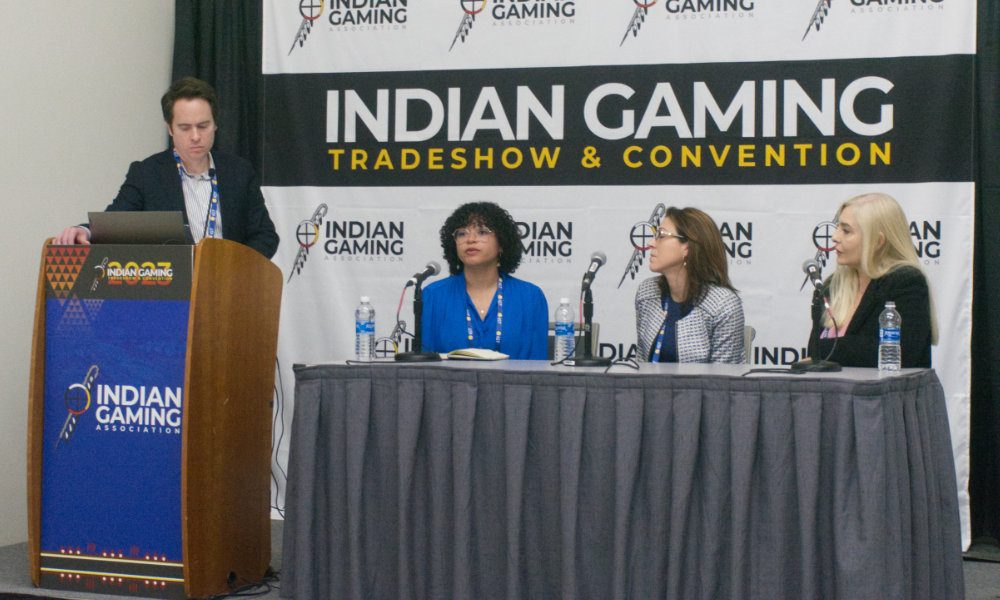As Problem Gambling Awareness Month comes to its conclusion March 31, the gaming-industry’s focus will naturally turn to other issues.
But Tuesday during the panel “Responsible Gaming Is Sustainable Gaming” at the Indian Gaming Association Tradeshow & Convention in San Diego, panelists agreed that RG efforts should be constant and ongoing.
“In the past, responsible gambling and problem gambling were often the last thoughts, the last commitment,” said Brianne Doura-Schawohl, CEO and founder of Doura-Schawohl Consulting, a boutique government-relations firm specializing in problem- and responsible-gambling policy. “It was very rarely a pillar of a lot of policies that we saw in both statutes and regulations.”
Doura-Schawohl added that as the gaming industry expands across the U.S., operators are more likely to be open to RG initiatives.
“All of a sudden, it’s gone from what we have to do to check that box to how we make this the nucleus of our policies,” Doura-Schawohl said. “What more do we need to be doing? What did we miss by these fairly aggressive, haphazard policies that we threw together?” Now, she added, “I do think we’re heading in the right direction.”
Moderator Rob Burke, editor of Indian Gaming magazine, asked the panel what needed to be done to keep RG efforts prevalent throughout the industry. National Council on Problem Gambling Program Manager Amanda Quintana said that RG starts with making it part of a company’s culture.
“Whether it’s through hiring, training, or policy making, when you’re considering regulations, when you’re considering structuring the games that are being produced or interactions with the community, it’s making sure that every step of the way we’re considering responsible gaming,” Quintana said. “Not as an afterthought, but at the forefront of every decision being made.”
Quintana added that her work with NCPG the rest of 2023 will be focused on efficiency and searching for areas where improvements can be made in the RG space. “We can move forward together and ensure that we’re creating games and environments and situations for all involved.”
One of the prongs of RG initiatives is to be able to identify when patrons are having issues. Panelist Wendy Anderson, CEO of RG24seven, a provider of online interactive responsible-gaming training, noted that it’s important for brick-and-mortar casino employees to know how to identify customers who may be having issues.
“We teach employees to watch for the signs, symptoms, red flags,” Anderson said. “We’re not teaching anyone to be clinicians; that’s not who we are. But hey, just keep an eye out and if you see something that’s not normal, say something.”
RG efforts have become even more important, given some of the recent coverage afforded the gaming industry by mainstream media outlets. And not just sports betting ads have been reined in by the American Gaming Association’s Responsible Marketing Code for Sports Wagering, which sets standards for responsible marketing and advertising of sports betting. Doura-Schawohl noted that igaming, or “slot machines your pocket,” is facing increased media scrutiny, “all of a sudden.”
“What are the implications for consumers? What are the implications for harm and addiction?” Doura-Schawohl asked. “I think this is where we’re starting to see the needle moving a little bit. Maybe not as quickly as we need it to, as it comes into training and highlighting our responsibility as operators to be monitoring this. What kind of interventions are appropriate? We’re not clinicians, but how do we direct people to those services? Do those services even exist?
“That’s an opportunity to ensure that every state and every jurisdiction ensures proper support and services for problem gambling right now.”



